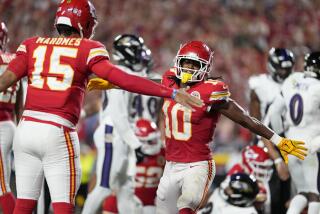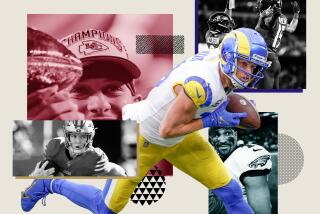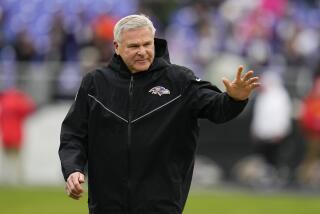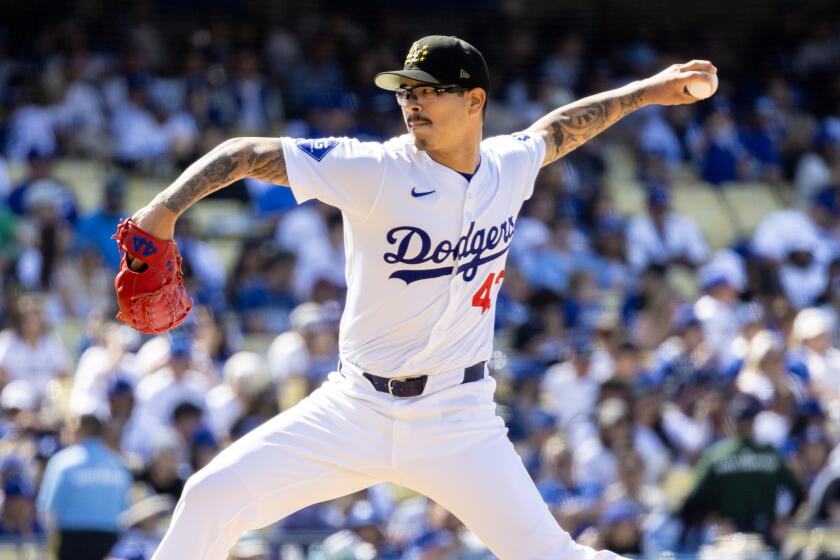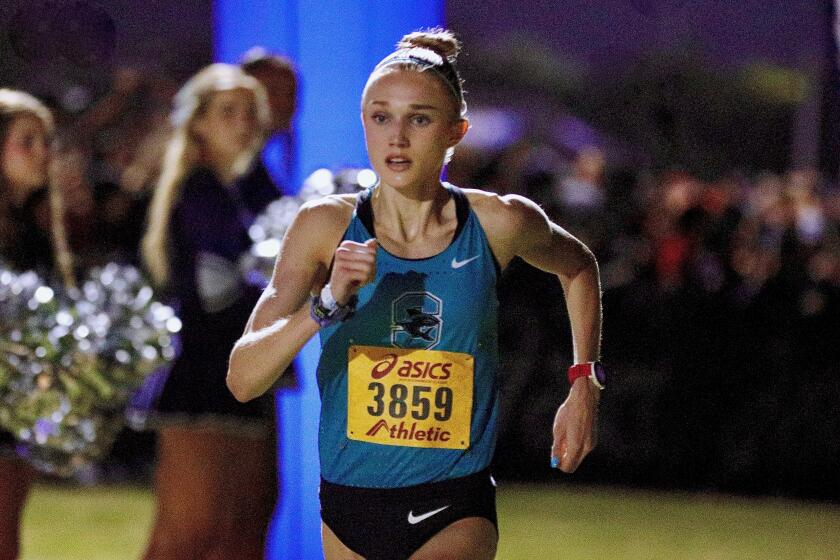Ravens prove that late-season losses can be helpful
NEW ORLEANS -- Seeing as the NFL is a copycat league, teams naturally want to emulate the blueprint of the franchise that wins it all.
So mark this down: Losing at the end of the regular season can be a good thing.
That’s what the champion Baltimore Ravens did, dropping four of their last five games this season before igniting in the playoffs and knocking off Indianapolis, Denver, New England and finally San Francisco in Super Bowl XLVII.
And the Ravens were traveling a well-worn path. The 2011 New York Giants won it all after losing four games in a row in November and December. The 2010 Green Bay Packers lost three of four down the stretch. The 2009 New Orleans Saints lost their last three in the regular season. The 2007 Giants were 4-4 over a November-December stretch. The 2006 Indianapolis Colts lost four of their last seven. And the 2005 Pittsburgh Steelers had a three-game losing streak during November and December.
Being dragged to the edge of a cliff and forced to stare into the abyss helps sharpen a team’s focus, reminding the players just how bad losing feels.
“I think the adversity does help, it does callus you up,” Coach John Harbaugh said Monday, the morning after his Ravens beat the 49ers, 34-31, to claim the Lombardi Trophy. “But through all that, we were improving. Even though we were losing, I felt like we were improving.”
In the end, the Ravens chalked one up for the traditional drop-back passers, as Joe Flacco was selected the game’s most valuable player after throwing for three touchdowns with no interceptions. His performance in this postseason — 11 touchdowns, no interceptions — was a resounding rebuttal to those who saw him as lacking, even though Flacco seems to shrug off those critiques.
“Joe came up the hard way,” Harbaugh said in the traditional Monday news conference for the Super Bowl’s winning coach and MVP. “Joe is not a guy that had everything laid out there perfectly before him in college. He dealt with adversity. I just felt like he was a guy that would do whatever it took to overcome whatever to be the best that he was going to be.”
So Flacco is this season’s Eli Manning, a quarterback who first classified himself as elite, then went out and proved it to everyone else. A huge payday awaits. Because Flacco’s rookie contract has expired, he’s due to become a free agent and will either strike an enormous long-term deal with Baltimore or be designated the team’s franchise player, requiring he be paid $14.6 million for next season.
“Me and Steve have had some good talks through the last few months,” Flacco said, referring to Ravens owner Steve Bisciotti. “I’m pretty optimistic. But who knows? This is a great organization. I love being here. It’s a great city. I don’t anticipate any problems.”
Whether he winds up with a long-term deal or a franchise tag, Flacco is almost certainly staying in Baltimore. But some other well-known quarterbacks are likely on their way out of their current cities, and that should make for some interesting tracking this off-season.
Alex Smith isn’t long for San Francisco, not with the emergence of Colin Kaepernick. Likewise for Matt Flynn in Seattle, now that Russell Wilson is the cornerstone of the Seahawks’ offense. Michael Vick’s future in Philadelphia is murky at best, and the only question about the New York Jets and Tim Tebow is whether the team will try to trade him — a tough sell — or simply release him.
Other water-cooler topics this off-season:
Concussions
What to do about head injuries is the league’s most pressing issue, and virtually every issue is viewed through that prism. There could be new rules and equipment changes, including a discussion this spring about doing away with kickoffs, and independent neurologists will be on every sideline in the fall.
Further, the competition committee will look into the possibility of defining a “strike zone” — a tackling area that’s not too high or low — and molding the rules around that.
Expanding season
The concept of an 18-game season isn’t dead, even though it runs counter to the notion of making the game safer. There’s not likely to be any movement on this for next season, but the league is interested in exploring the idea of trading exhibition games that don’t count for games that do. What’s more, expanding the playoff field from 12 teams to 14 or 16 is also on the table.
College offenses
The success of the read-option-style offenses in San Francisco, Washington, Seattle and elsewhere will be a hot topic this spring and beyond, and will influence what types of quarterbacks will go early in the draft. Lots of eyes are on Philadelphia and what former Oregon coach Chip Kelly plans to do with the Eagles.
Bold coaches
Just look at the two coaches in the Super Bowl, brothers John and Jim Harbaugh. Both made hugely gutsy moves this season, with John switching offensive coordinators near the end of the year, and Jim benching the red-hot Alex Smith for the lightly experienced Kaepernick. Playing it safe doesn’t cut it anymore.
Super Bowl XLVIII
Next up, an outdoor, cold-weather Super Bowl at MetLife Stadium in East Rutherford, N.J. It’s likely the temperatures could dip into the 20s or below. (The coldest Super Bowl was 39 degrees in 1972, at Tulane Stadium in New Orleans.) Then again, some of the league’s greatest games were played in the cold. And besides, 99.9% of NFL fans will be watching from a couch somewhere, and players are accustomed to foul-weather games, so does it really matter?
Big deal. We’ll just go from this year’s Bros’ Bowl to next year’s Brrr Bowl.
twitter.com/LATimesfarmer
More to Read
Go beyond the scoreboard
Get the latest on L.A.'s teams in the daily Sports Report newsletter.
You may occasionally receive promotional content from the Los Angeles Times.
